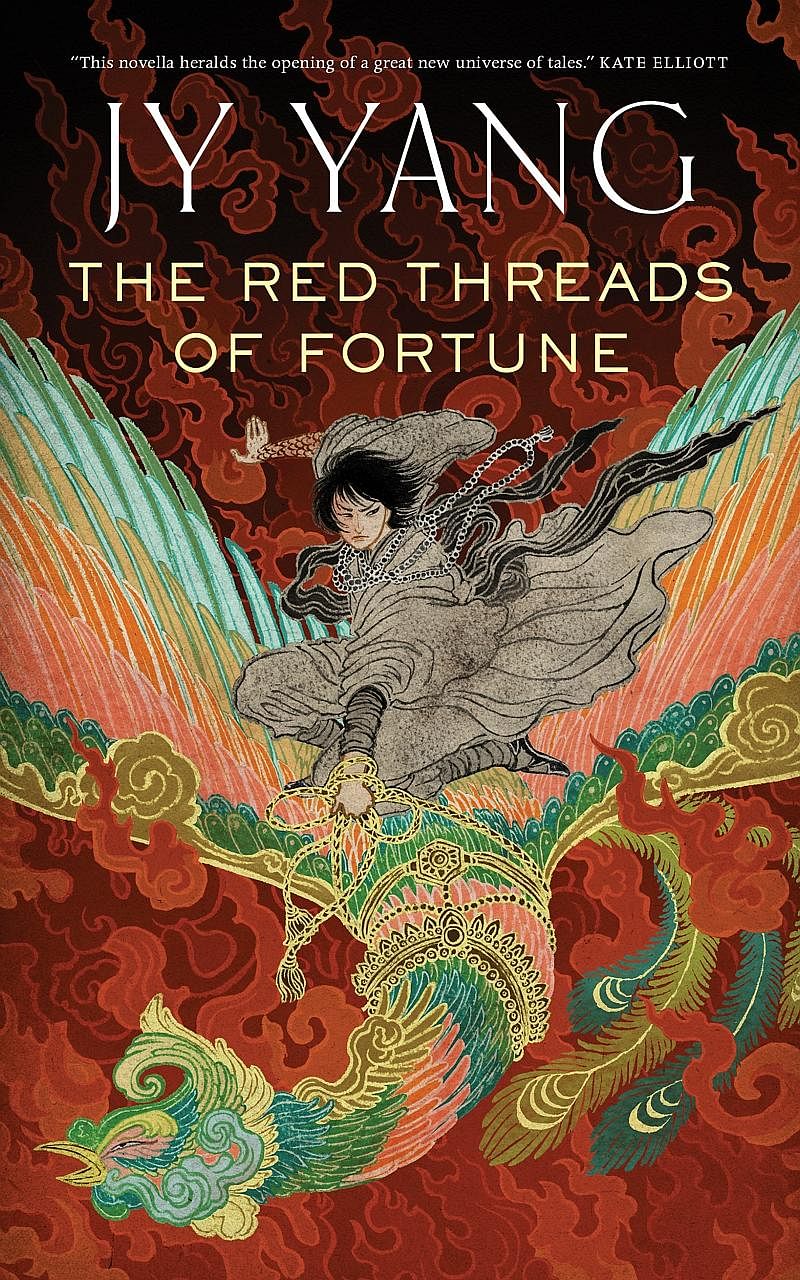FANTASY
THE BLACK TIDES OF HEAVEN
By J.Y. Yang
Tor/239 pages/$24.56/ Major bookstores/4/5 stars
THE RED THREADS OF FORTUNE
Tor/213 pages/$24.56/ Major bookstores/4/5 stars

This pair of nifty fantasy novellas have been billed by publisher Tor as silkpunk, a clever coinage spun to describe an Asian take on steampunk.
The latter borrows from the Victorian era its steam technology and assorted design aesthetic, then adds dashes of fantasy. Silkpunk does the same, except its milieu is inspired by Asian cultures and aesthetic.
Hence these books, which kick off the Tensorate series, are set in a world modelled on ancient China, with dabblings in Japan and South-east Asia. Alongside monsters such as nagas and kirins sits a belief system which borrows elements of Chinese fengshui and geomancy as well as the fantasy tropes of supernatural prowess and the people who wield them.
If all this sounds a bit rojak, it is. But like rojak - a local salad of fruit and vegetables - it is a surprisingly delicious blend of unexpected flavours.
Author J.Y. Yang is Singaporean, which explains the cultural melting pot and the ease with which she culture-switches.
Start with The Black Tides Of Heaven if you are a chronology purist - that is the introduction to the Protector, the Empress Dowager Cixi-meets-Darth Vader ruler of the Protectorate, and her twin children Mokoya and Akeha, the supernaturally gifted protagonists of thetales.
The narrative in Black Tides dips into the lives of the twins at pivotal moments, starting before their births.
Mokoya is gifted with foresight, which allows her to see events before they happen, while Akeha turns out to be a master of slackcraft, an ability to manipulate the natural world akin to magic and which manifests in ways that will be instantly familiar to audiences who grew up on a diet of martial arts movies.

The devoted twins are eventually divided by their gifts as well as their genders (an interesting conceit here is that people choose their genders in this world) and their divergent paths drive the tensions in the narrative.
While Akeha's path is the focus of Black Tides, Red Threads focuses on Mokoya's story and picks up where the first book leaves off, following Mokoya after a major trauma tears her from the side of her mate Thennjay and sends her to the desert wilds.
Fantasy fans are used to massive tomes which take their own time to build an alternate world. Yang's offering is a refreshing change.
In two slim volumes, she deftly creates a brimming universe, girded by certain natural laws and overflowing with details that serve as enticing appetisers to tempt readers into following what will hopefully become a full-fledged series.
There is a lot of stuff to pack in (rebel movement, monster-hunting) and Yang manages with an admirably fluid ease. There are cameos that will make Singaporean readers chuckle - the Hokkien swear words, the Malay place names and the unmistakable singsong clip of Singlish that sounds in sync with the character of a captain of a naga-hunting crew.
These threads are woven seamlessly into the narrative, creating a world that is at once familiar and foreign, and which this reader, for one, would love to revisit.
If you like this, read: The Ghost Bride by Yangsze Choo (William Morrow & Co, 362 pages, $19.57, Books Kinokuniya), a spine-tingling ghost story set in colonial Malaya about a girl who becomes the ghost bride for a wealthy family's deceased son.


